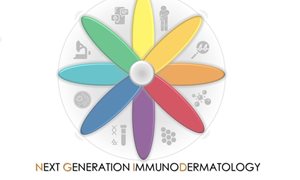4 June 2020
EDC software is used to design the electronic Case Report Form (eCRF) and collect data. There are many different EDC systems available, which complicates the combination and integration of the eCRFs from different studies or institutes. This stands in the way of the FAIR data principles: Findable, Accessible, Interoperable and Reusable.
A solution to this problem is the iCRF Generator, a tool that facilitates the interoperability of eCRFs from different EDC systems. The iCRF generator uses data codebooks available in NICTIZ as a template to define information standards with the help of ontologies. Researchers from Radboudumc and Amsterdam UMC joined hands to create a codebook that provides a clear overview of the European wide accepted standards for Common Data Elements (CDEs) of rare disease registries. This codebook captures the CDEs with ontologies to bring together the definition (for humans) as well as the identifiers/code used to semantically annotate each one of them (for computers), ensuring interoperability of data for the field of rare diseases.
Within the context of the European Joint Programme on Rare Diseases, the researchers are working on the implementation of FAIR registries. A first FAIR registry is Radboudumc’s VASCA registry for patients with vascular malformations, jointly designed by Radboudumc, LUMC and CastorEDC.
"With the iCRF developers, we made the VASCA codebook available in such a form that all the 24 European Reference Networks for rare diseases can use a common template, instead of designing eCRFs from scratch." - Bruna dos Santos Vieira.

EDC software is used to design the electronic Case Report Form (eCRF) and collect data. There are many different EDC systems available, which complicates the combination and integration of the eCRFs from different studies or institutes. This stands in the way of the FAIR data principles: Findable, Accessible, Interoperable and Reusable.
A solution to this problem is the iCRF Generator, a tool that facilitates the interoperability of eCRFs from different EDC systems. The iCRF generator uses data codebooks available in NICTIZ as a template to define information standards with the help of ontologies. Researchers from Radboudumc and Amsterdam UMC joined hands to create a codebook that provides a clear overview of the European wide accepted standards for Common Data Elements (CDEs) of rare disease registries. This codebook captures the CDEs with ontologies to bring together the definition (for humans) as well as the identifiers/code used to semantically annotate each one of them (for computers), ensuring interoperability of data for the field of rare diseases.
Within the context of the European Joint Programme on Rare Diseases, the researchers are working on the implementation of FAIR registries. A first FAIR registry is Radboudumc’s VASCA registry for patients with vascular malformations, jointly designed by Radboudumc, LUMC and CastorEDC.
"With the iCRF developers, we made the VASCA codebook available in such a form that all the 24 European Reference Networks for rare diseases can use a common template, instead of designing eCRFs from scratch." - Bruna dos Santos Vieira.
This has been made possible by the contributions of many people:
- Development and Implementation of Vasca registry and semantic model: Karlijn Groenen, Annika Jacobsen, Martijn G. Kersloot, Rajaram Kaliyaperumal, Ronald Cornet, Peter A. C. ’t Hoen, Bruna dos Santos Vieira, Marco Roos, Leo Schultze Kool
- Development of Codebook: Gurnoor Singh, Bruna dos Santos Vieira, Peter A. C. ’t Hoen, Sander de Ridder, Jeroen Beliën
- Development Common Data Elements: European Joint Research Center - JRC.
- Funders: Radboudumc, VASCERN, EJPRD
Related news items

Large NWA ORC grant awarded for national skin research: Next Generation ImmunoDermatology
23 March 2022Research for better treatment methods for chronic skin diseases.
go to page
Metakids-UMD grant for Purva Kulkarni
18 June 2020 The Metakids foundation has awarded 220.575 Euro to support the establishment of a multi-omics biomarker platform within the United for Metabolic Disease (UMD) consortium. go to page
The new front line: big data podcast
22 May 2020 What role do big data and technology play in the fight against corona? What data can help save lives? How do you ensure that your personal health data is used safely? Among others, Peter-Bram 't Hoen explains. go to page
MetaDome highly accessed
7 May 2020MetaDome was recently recognized as one of the most accessed articles of 2018-2019 in Human Mutation. The MetaDome was a project developed by Laurens van de Wiel, Christian Gilissen, and Gert Vriend.
go to page
Towards molecular therapies for Myotonic Dystrophy
1 October 2019ReCognitION, a new 1.3 M€ European project under the leadership of Peter-Bram ‘t Hoen, Baziel van Engelen and Jeffrey Glennon, was kicked-off in Gent.
go to page
